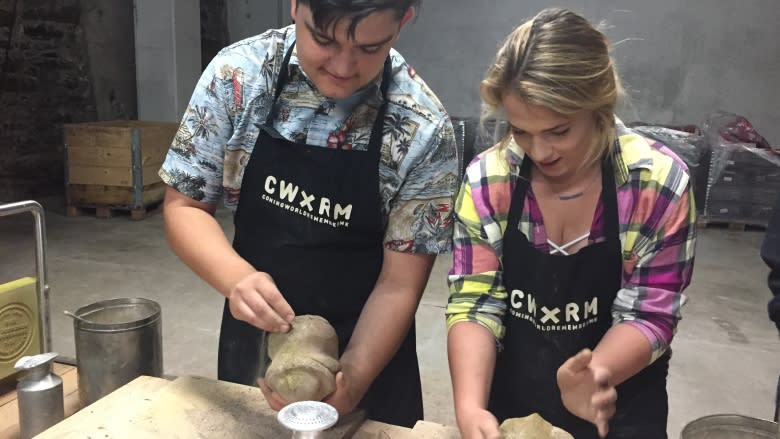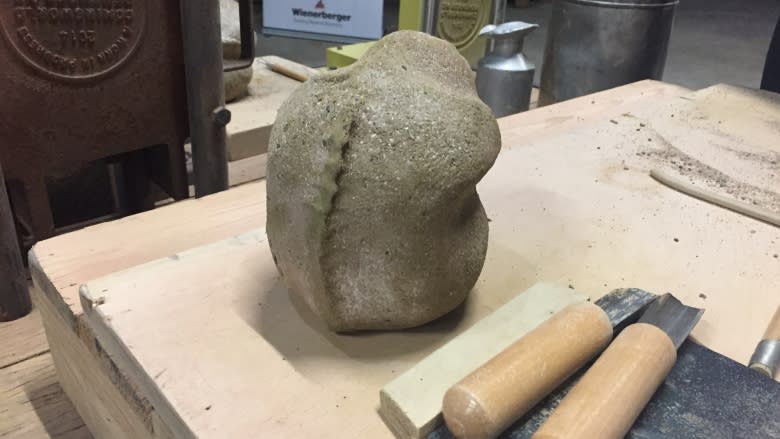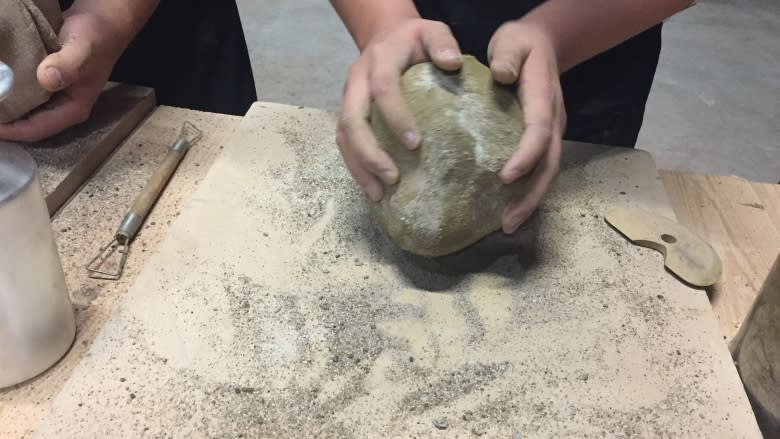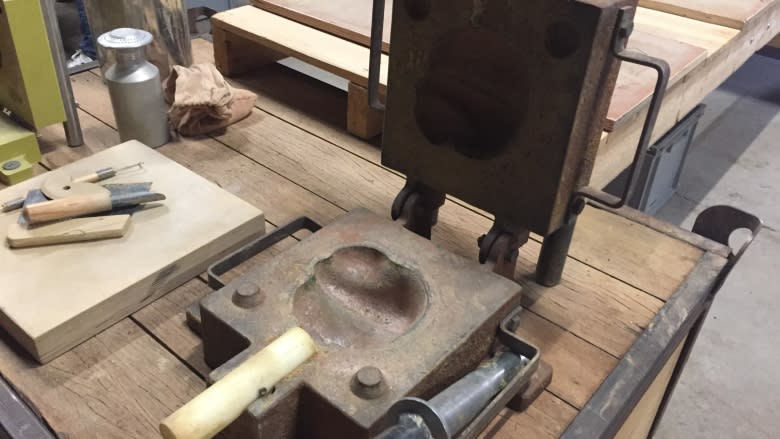Public encouraged to help create sculptures destined for Flanders Fields
This spring, 600,000 small clay sculptures will be installed in Flanders Fields, a major battle ground in the First World War — one for each person who died on Belgian soil.
Thousands of people around the world have helped make the art pieces by hand. Starting Sunday, visitors to the Citadel Hill National Historic Site in Halifax can roll up their sleeves and take part.
Project co-ordinator Lieselotte Moeyaert stresses the importance of giving so many people a hands-on role.
"When we all feel connected to each other, that's the best way to move forward and to move to peace. If we belong to each other, we don't feel the need to fight each other that often," she said in an interview Friday.
Each sculpture starts as a lump of clay, made with soil from both Belgium and Germany. It's shaped into a rough oval by pounding it against the table and then sprinkled with sand before getting pressed in a mould. Once out, it has a head with arms folded around the body. A spine is then formed by hand along the back,
"The spine of the sculpture is important because the spine is what enables us to stand up, to move forward to go into the future," Moeyaert said. "So it's also a symbol of hope at the same time. That is very important to us."
The Coming World Remember Me project, which started in 2014 at the beginning of the commemoration of the war, has created 550,000 sculptures so far, more than 60,000 of them for Canadians who lost their lives.
The creations will be placed an area known as "no man's land" outside the Belgian municipality of Ypres.
This year marks the 100th anniversary of the Battle of Passchendaele, one of the bloodiest fights of the First World War.
The size and scope of the installation is meant to be a tribute to the fallen but also a public reminder of human cost of war.
"A lot of lessons are in danger of being lost," said Ken Hynes, curator of the Army Museum at the Citadel.
"The fact that all of these people were real, just like you and me, I think that's tremendously important. [It] gives folks an opportunity to feel part of the whole commemorative process."
Public workshops will be held at the Citadel from 10 a.m. to 4 p.m. from Sept. 24 to 29.






